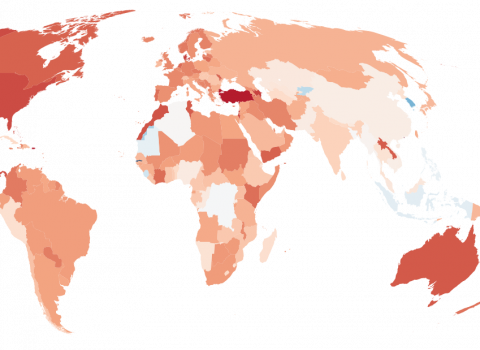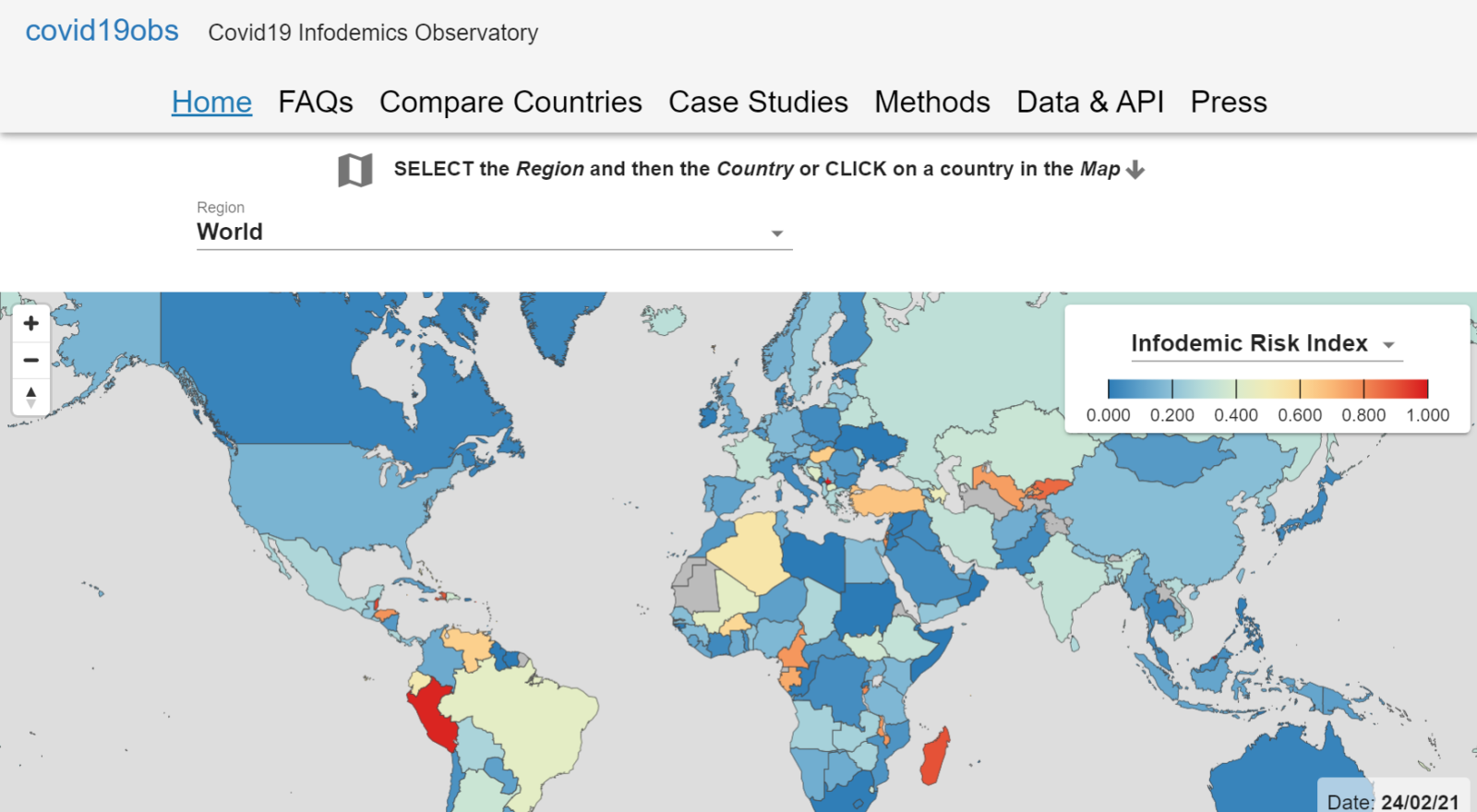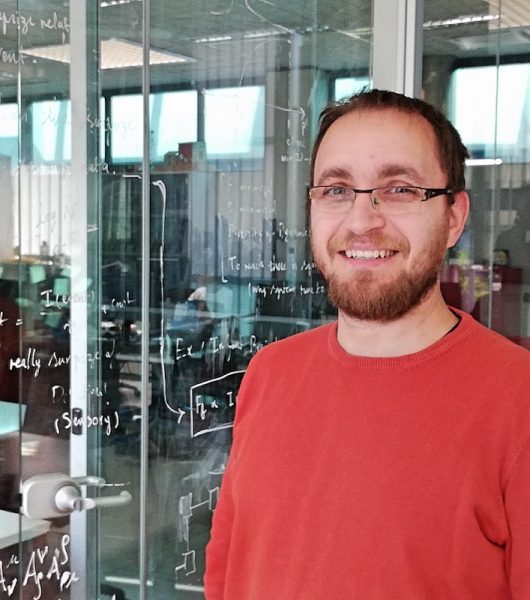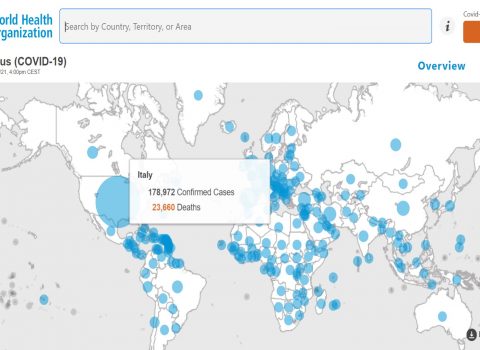
Released the full version of COVID19 INFODEMIC OBSERVATORY by FBK CoMuNe Lab
With many new features, a freely and user friendly platform to independently conduct a number of analysis for which at the moment there is no other online resource available
The Bruno Kessler Foundation (FBK) officially releases the new version od the Infodemic Observatory for COVID-19, launched on March 2020. This work has been recommended by the World Health Organization (WHO) to better understand the impact of an infodemic on a global scale. Following the WHO global conferences held on April and June 2020, the scientific community highlighted the need for evidence-based research tools to better understand, monitor and measure the infodemic phenomenon.
Based on artificial intelligence, data science and network science techniques, the Observatory provides in near real time a unique lens on the current state of misinformation and bad information spreading on the popular Twitter microblogging platform.
The computational tool, accessible to the public, is the result of an interdisciplinary collaboration involving physicists, computer scientists, cultural economists, public health and communication experts from FBK promoted by WHO.
The platform offers information on the evolution of the COVID-19 infodemic – that is the overabundance of information not necessarily reliable – using a set of indices developed for the analysis of this increasingly worrying phenomenon that is emerging on a global level, which are based on a scientific paper reviewed by anonymous experts recently published in the prestigious journal Nature Human Behavior.
“We need new methodologies and metrics to measure infodemics and develop interventions that cancel their negative impact. Understanding where information gaps exist will allow us, for example, to ensure that more reliable information reaches communities before less reliable sources sneak in space and mind. Understanding this information ecosystem will be a key component in managing an infodemic during health emergencies” states Tim Nguyen, head of the High Impact Event Prevention Unit at the World Health Organization.
“Infodemics are the socio-cognitive equivalent of infectious processes. Spreading information or ideas that, in the midst of a health crisis, systematically mislead public opinion and push people to make bad choices, becomes a public health issue as well as the epidemic itself “, says Pier Luigi Sacco, FBK researcher and member of the research group, public policy expert and lecturer at the IULM University of Milan.
According to Manlio De Domenico, scientist of complex systems and head of the FBK Complex Multilayer Networks Lab that led the team working on the project: “Infodemics have characteristics similar to those of epidemics, with millions of people unaware to be exposed to unreliable news that has been spread online. The dynamics of this phenomenon have yet to be understood and this Observatory represents an important step in the right direction”.
This resource is made publicly available to the entire scientific and professional community to multiply as much as possible the efforts of understanding and analyse a situation of great social emergency such as the current one.
Main new features:
- The new version offers a number of indicators for unique and user-friendly possibilities of analyzing the infodemic risk: the infodemic risk index which measures the penetration of news from biased or unreliable sources, the dynamic infodemic risk index which measures the intensity of propagation of unreliable news, the index of unreliability of sources which measures the weight of biased or unreliable sources in the communication ecosystem of a country.
- The new version also allows the comparison between the infodemic risk status of all the main countries of the world.
- The observatory also offers thorough case studies on selected countries that offer users guidance on how to build similar analysis for all other countries for which data is available.
Explore the online tool: https://covid19obs.fbk.eu/#/





